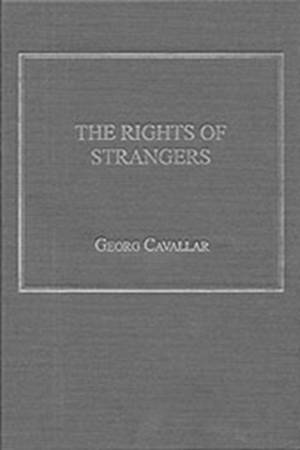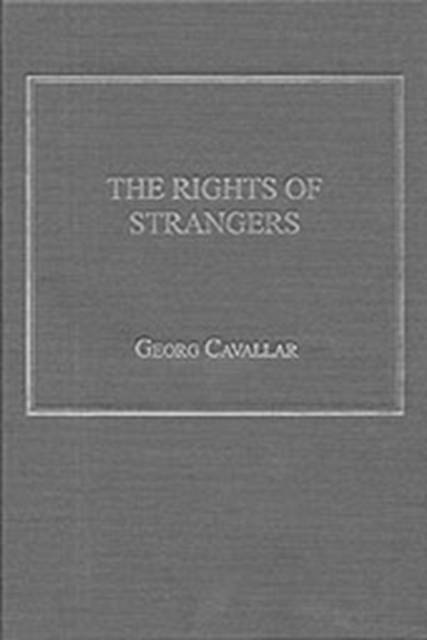
- Afhalen na 1 uur in een winkel met voorraad
- Gratis thuislevering in België vanaf € 30
- Ruim aanbod met 7 miljoen producten
- Afhalen na 1 uur in een winkel met voorraad
- Gratis thuislevering in België vanaf € 30
- Ruim aanbod met 7 miljoen producten
Zoeken
The Rights of Strangers
Theories of International Hospitality, the Global Community and Political Justice Since Vitoria
Georg Cavallar
Hardcover | Engels
€ 182,45
+ 364 punten
Omschrijving
This study investigates the thinking of European authors from Vitoria to Kant about political justice, the global community, and the rights of strangers as one special form of interaction among individuals of divergent societies, political communities, and cultures. Taking an interdisciplinary approach, it covers historical material from a predominantly philosophical perspective, interpreting authors who have tackled problems related to the rights of strangers under the heading of international hospitality. Their analyses of the civitas maxima or the societas humani generis covered the nature of the global commonwealth. Their doctrines of natural law (ius naturae) were supposed to provide what we nowadays call theories of political justice. The focus of the work is on international hospitality as part of the law of nations, on its scope and justification. It follows the political ideas of Francisco de Vitoria and the Second Scholastic in the 16th century, of Alberico Gentili, Hugo Grotius, Samuel Pufendorf, Christian Wolff, Emer de Vattel, Johann Jacob Moser, and Immanuel Kant. It draws attention to the international dimension of political thought in Thomas Hobbes, John Locke, Jean-Jacques Rousseau, David Hume, Adam Smith, and others. This is predominantly a study in intellectual history which contextualizes ideas, but also emphasizes their systematic relevance.
Specificaties
Betrokkenen
- Auteur(s):
- Uitgeverij:
Inhoud
- Aantal bladzijden:
- 430
- Taal:
- Engels
Eigenschappen
- Productcode (EAN):
- 9780754606321
- Verschijningsdatum:
- 28/01/2002
- Uitvoering:
- Hardcover
- Formaat:
- Genaaid
- Afmetingen:
- 152 mm x 219 mm
- Gewicht:
- 703 g

Alleen bij Standaard Boekhandel
+ 364 punten op je klantenkaart van Standaard Boekhandel
Beoordelingen
We publiceren alleen reviews die voldoen aan de voorwaarden voor reviews. Bekijk onze voorwaarden voor reviews.











